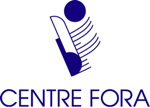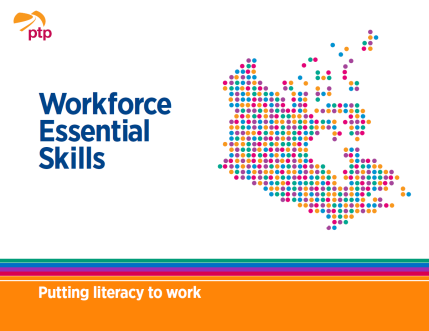Collaborate with us.
Through partnerships, we can create impact on a larger scale.
We collaborate
We’ve been working with local educators, employment service providers and employers for more than 20 years. By doing so, we gain a rich understanding of the unique regional barriers that prevent workers from fully accessing the job market.We look at the whole picture
The most effective bridge-to-work programming starts with a holistic review of both employers’ and trainees’ needs, the regionalized factors that contribute to success in learning and the supports that can smooth the transition to work.We share our knowledge
We work locally, but our successes are passed on to community-based agencies from coast to coast to coast so that others can benefit from what we know.We make great partners
We have an extensive history of working alongside various organizations on a variety of innovative training programs.What we offer
Research and proposal services
Program services
Professional development
Resource development
Our work across Canada







PTP and Futureworx have collaborated on a number of projects including WESCAN and CAMERA training. PTP and Futureworx recently presented on the benefits of using complementary tools to create blended program strategies for transitioning low-skilled adults to the workforce at the ProLiteracy Conference on Adult Literacy.
PTP was contracted by the Nova Scotia Department of Labour and Advanced Education to pilot the use of the seven CAMERA assessments in their current form within Nova Scotia’s proposed ROA system. The design involved training CAMERA administrators, and gathering information to identify strengths and limitations in using CAMERA for desired outcomes and summarize results of CAMERA piloting, including potential adaptations to CAMERA and within the ROA system.
PTP worked with Centre FORA to translate and adapt the workwrite series of instructional guides into French. This project built on the investment made by MTCU into the workwrite resources to:
translate existing materials and adapt them for use in Francophone literacy programs and other organizations who working with Francophones at low literacy level.
write introductory text to orient practitioners to task-based, workforce literacy programming and guide them in using the materials in OALCF settings.
PTP in partnership with, RESDAC (Réseau pour le développement de l’alphabétisme et des compétences) undertook a project to adapt CAMERA (Communications and Math Employment Readiness Assessment) for use in francophone workforce-oriented literacy programs.
PTP was contracted by Seven Generations to formalize an eight-week (40 day / 240 hour) Workforce Literacy and Essential Skills instructional guidebook that draws on workwrite and PLATO materials.
Deaf CAMERA is for Deaf learners in literacy programs who want to develop the skills they will use in a job. Deaf CAMERA is right for learners at Essential Skills levels, 1, 2, and 3. Deaf CAMERA is used to assess learners’ skill levels and strengths in reading, writing, document use, and numeracy. Tasks are like real workplace tasks.
PTP was contracted to create four courses, two communications and two numeracy, to be part of the ABE Essential Skills Program, and develop all associated course materials, including in-class assessments and assignments, conduct research as required to develop evidence-based products, and design and deliver training on the use of the products.
PTP worked closely with communities across Canada to build meaningful programming for low-skilled individuals. The project used the CAMERA System as its foundation, combined with the knowledge gained through years of research and analysis on effective ways to transition low-skilled adults to work.
The WESCan report
Partner with us.
Get answers about Consulting Services.
Contact us.



